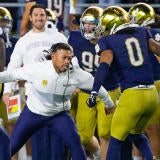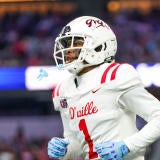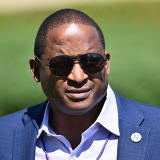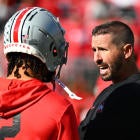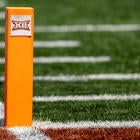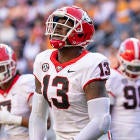College football is filled with historic figures, some of whom have become bigger than life as the years have passed. The kind of figures that would be carved in stone somewhere in South Dakota as a monument to all they accomplished.
Here at CBS Sports, we decided to put together our own Mount Rushmores for some of college football's most historic programs. Today, we look at the men who helped build Michigan State football.
This was somewhat of a difficult task. In present day, Michigan State feels somewhat like a newcomer to the world of college football's elite, but this is a program that claims six national titles between 1951 and 1966, so this hasn't been the only strong decade of Michigan State football.
That is why, as difficult of a decision as it was to make, current Michigan State coach Mark Dantonio didn't make the cut. In fact, nobody from this latest renaissance of Michigan State football did.
Instead, we look to the past for the four figures that really brought glory to the Spartans.
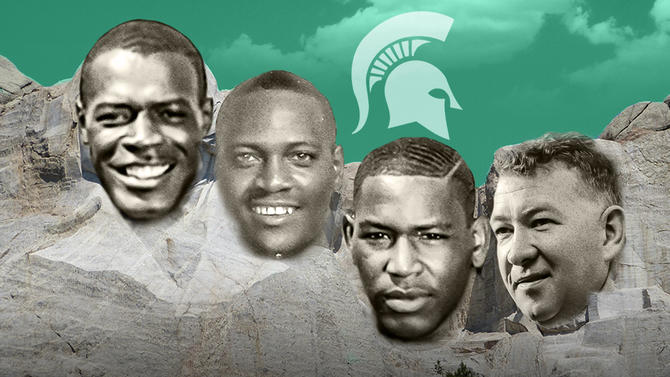
George Webster, defensive back, 1964-66: Webster was called "the greatest football player I ever coached" by Daugherty, who also said Webster "doesn't tackle people, he explodes them!" Webster played a position called Roverback, which Daugherty created for him; he was a combination safety-linebacker, a hybrid we see a lot more of today. Many consider Webster the greatest Michigan State player of all time, as the Spartans went 23-6-1 in his three years as a starter, winning two national titles. After leaving Michigan State, Webster would be chosen fifth overall by the Houston Oilers in the 1967 AFL Draft. Webster's No. 90 was the second number Michigan State retired.
Accolades: College Football Hall of Fame, All-American, All-Big Ten
Lorenzo White, running back, 1984-87: The most accomplished running back in school history, White's name is all over the program's record books. He's the Spartans all-time leader in rushing yards (4,887), rushing attempts (1,082), rushing touchdowns (43) and 100-yard games (23). The 4,887 career rushing yards still ranks fifth all-time in Big Ten football history. He rushed for 2,066 yards as a sophomore, becoming the first Big Ten rusher to ever break the 2,000-yard mark, and he's still the only Spartan who has been able to accomplish the feat. He rushed for 292 yards in his final home game against Indiana, leading the Spartans to a 27-3 win and clinching the team's first Big Ten title and trip to the Rose Bowl since 1966.
Accolades: Consensus All-American (twice), All-Big Ten (thrice), fourth place in Heisman voting (twice)
Bubba Smith, defensive end, 1964-66: A teammate of Webster's, Bubba Smith was a giant defensive end for the Spartans before giant defensive ends became the norm. When he stepped on the field standing at 6-foot-7 and weighing in at 280 pounds, Bubba stood out. He almost did not play at Michigan State, however, because the native Texan wanted to play at Texas. Unfortunately for the Longhorns and fortunately for the Spartans, Texas could not offer him a scholarship since the Southwestern Conference had yet to be integrated.
Smith dominated on the field as a leader of its Gang Green defense, doing so as Michigan State fans would chant "Kill, Bubba, Kill!" The Baltimore Colts made Smith the first selection of the 1967 NFL Draft. Following his football career, Smith gained a new form of fame, starring as Moses Hightower in the Police Academy movies.
Accolades: College Football Hall of Fame, All-American (twice), All-Big Ten (twice)
Duffy Daugherty, coach, 1954-72: Daugherty spent 19 seasons at Michigan State, going 109-69-5 in the process. He won two recognized national titles in 1965-66 (the school claims two more in 1955 and 1957), and was also one of the first coaches to field a racially integrated team. Daugherty also led the Spartans to eight straight wins over rival Notre Dame from 1955-63, a win streak matched only by Michigan (1887-1908) and USC (2002-09) against the Irish.









